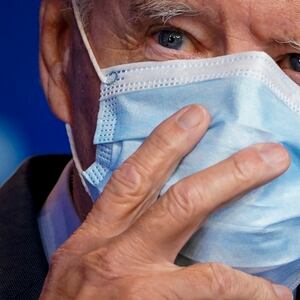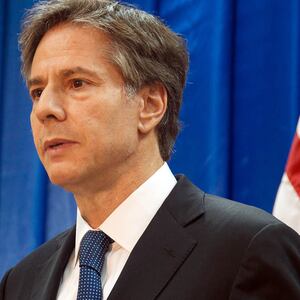By Rachana Pradhan, Kaiser Health News
President-elect Joe Biden made COVID-19 a linchpin of his campaign, criticizing President Donald Trump’s leadership on everything from masks and packed campaign rallies to vaccines.
That was the easy part. Biden now has the urgent job of filling top health-care positions in his administration to help restore public trust in science-driven institutions Trump repeatedly undermined, and oversee the rollout of several coronavirus vaccines to a skeptical public who fear they were rushed for political expediency.
ADVERTISEMENT
At the top of that list is a new commissioner of the Food and Drug Administration, an agency where Biden faces immense pressure to move faster than any other modern president as the pandemic rages and COVID deaths are expected to surge through the winter. That agency and its beleaguered personnel will be relied on to give the green light to vaccines and therapeutics to fight the COVID pandemic.
Biden is expected to swiftly announce his choices to lead the FDA and the Centers for Disease Control and Prevention, given their importance in informing the federal government’s COVID strategy, according to interviews with Biden advisers, former agency officials and Democrats with knowledge of the transition team’s inner workings. But how soon they’ll be able to begin work after Biden’s Jan. 20 inauguration is unclear.
The CDC director does not need Senate confirmation, avoiding a hurdle that could slow that process. That is not the case for the FDA commissioner. As a result, even if Biden moves at breakneck speed to replace outgoing Commissioner Stephen Hahn, it could be weeks after Biden is in the White House before his pick could get to work.
In the meantime, the FDA will face critical decisions about vaccines needed to help put the nation on its path out of the pandemic. Biden will have to rely on a temporary head of the FDA to steer the 17,000-employee agency during one of the most challenging times in its history.
“It’s not ideal timing, for sure,” a former FDA official said. “It’s a huge job.”
The transition of power will occur at one of the most high-profile times for the FDA, as it vets multiple coronavirus vaccine candidates that could reach the public before the inauguration. The Trump administration could oversee emergency authorizations of initial vaccines from two frontrunners, Pfizer and Moderna, that would be prioritized for health-care workers and other groups at higher risk of severe COVID complications. But other companies’ vaccines that could be available for many more Americans—such as teachers, adults at lower risk of severe health consequences if they get sick, and children—are all but certain to fall under Biden’s FDA for review because the data on safety and efficacy isn’t expected until next year.
FDA’s credibility in vetting the safety and benefits of COVID products has been in question for months, fueled by Hahn’s inaccurate statements about certain treatments for sick patients. Further, infighting between officials there and political appointees at the White House and the Department of Health and Human Services persisted even in the weeks leading up to the election, with HHS Secretary Alex Azar openly plotting Hahn’s removal because of disagreements over vaccine standards, Politico reported in October.
In September, eight senior FDA officials who have served in multiple administrations took the extraordinary step of publishing an op-ed in USA Today stating they would work with agency leadership “to maintain FDA’s steadfast commitment to ensuring our decisions will continue to be guided by the best science.”
“Protecting the FDA’s independence is essential if we are to do the best possible job of protecting public health and saving lives,” the officials wrote.
“Trust has eroded so significantly in these institutions that have undermined public confidence, especially on vaccines,” a Biden adviser said of the FDA and CDC. “Change in leadership is critical.”
Getting new people into the federal government—where Biden is charged with filling roughly 4,000 jobs held by political appointees—is a mammoth slog on its own, let alone while moving to take over the U.S. pandemic response. Former President Barack Obama set the record for presidential appointments in the first 100 days, securing Senate confirmation for 69 appointees. The FDA commissioner wasn’t among them—Dr. Margaret Hamburg was not nominated until March 2009 and became commissioner that May. A similar timeline held for Trump’s first FDA commissioner, Dr. Scott Gottlieb, who began in May 2017.
“It is a difficult period because you’re going to have a lot of folks who need to get into place,” said Max Stier, CEO of the Partnership for Public Service, which advises presidential candidates and their teams installing new administrations. “The track record has not been good on getting people in quickly.”
At the outset of the Biden administration, it’s expected there will be a fair number of “acting” agency heads rather than Senate-confirmed appointees, Stier said. Biden has said he’ll trust the government’s scientists on COVID vaccines. Former FDA officials said in interviews that if there’s an acting official in charge when a specific vaccine is under review, it should not make a difference because the agency’s longtime scientists conduct the necessary scientific evaluations.
Where it could make a difference is in messaging and accountability, not just to the new president but to the public: The traditionally lower profile and temporary nature of an acting FDA commissioner is at odds with the highly visible role the commissioner is expected to play during a public health emergency, particularly in convincing people that vaccines are safe.
“An agency needs a face, and it’s hard for an ‘acting’ to be the face of the agency,” a former senior agency official said. “The work could be done, but the communication is always better if there’s an FDA commissioner who’s willing to take responsibility.”
The messaging role has taken on extraordinary importance since public confidence in a coronavirus vaccine has eroded significantly. A September Pew Research Center poll found that only 51 percent of U.S. adults would definitely or probably get a vaccine to prevent COVID-19 if it were available, a drop of 21 percentage points since May.
“Things can only be better,” said Michael Carome, director of the health research group at Public Citizen, a left-leaning group that advocates for consumer interests. “I think an acting commissioner under a Biden administration will be far more trusted than the current FDA commissioner, who has been kowtowed by the White House.”
FDA staffing policy outlines who should be the agency’s acting head in the event there isn’t a permanent commissioner. The most recent version, from 2016, says the position is delegated to the deputy commissioner for foods and veterinary medicine, a title that has since been recast as deputy commissioner for food policy and response. The job is currently held by Frank Yiannas, a longtime food safety expert who joined the agency in 2018 after the retirement of Stephen Ostroff, a veteran FDA scientist who served as acting commissioner twice. The FDA did not respond to questions about whether it had a new staffing policy.
Some administrations, however, have ignored that policy. The Trump administration, for example, briefly installed senior HHS official Brett Giroir, a political appointee, as acting FDA commissioner, a move criticized by Democrats in Congress.
But critical decisions await the new appointee.
The earliest officials would know whether COVID vaccines from Johnson & Johnson and AstraZeneca work is January or February, said Moncef Slaoui, the top scientific adviser for Operation Warp Speed, which is funding multiple coronavirus vaccines and treatments. Other efficacy trials won’t be completed until spring, he said in October.
Safety will take even longer to assess—Johnson & Johnson’s and AstraZeneca’s late-stage clinical trials were already paused earlier this year for safety reasons—and companies will seek emergency authorization or FDA approval only once both metrics are known.
After four years of politicization of the science agency, a Biden adviser said, most important was having a “trusted, credible voice to restore trust in a vaccine.”
KHN (Kaiser Health News) is a nonprofit news service covering health issues. It is an editorially independent program of KFF (Kaiser Family Foundation) that is not affiliated with Kaiser Permanente.







